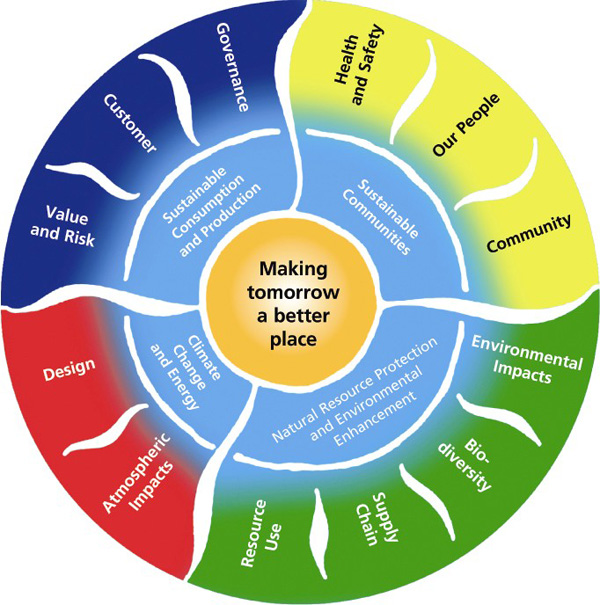The conversation surrounding sustainable living increasingly points towards our plates. Plant-based diets, once niche, are now central to discussions about mitigating climate change, conserving resources, and fostering a healthier relationship with our planet. This analysis adopts a multi-lens approach examining the environmental benefits of plant-based eating through the perspectives of environmental science, nutrition, ethics, everyday practice, and cultural observation.
Key findings reveal substantial environmental advantages, particularly concerning greenhouse gas emissions, land use, and water consumption, linked intrinsically with nutritional and ethical considerations. However, the analysis also highlights nuances, challenges, and the evolving cultural landscape surrounding this dietary shift, offering a comprehensive 360° view.
How a Plant-Based Diet Helps Heal the Planet: A Deep Dive
LENS 1: Environmental Scientist’s Analysis
- Key Findings: Animal agriculture is a primary driver of environmental degradation. Shifting towards plant-based food systems offers significant mitigation potential across key ecological metrics.
- Detailed Analysis:
- Greenhouse Gas (GHG) Emissions: The livestock sector is a major contributor to anthropogenic GHG emissions, primarily methane (CH₄) from enteric fermentation and manure, nitrous oxide (N₂O) from fertilizers used for feed crops, and carbon dioxide (CO₂) from land-use change (deforestation for pasture/feed). Landmark studies, such as the 2018 research by Poore & Nemecek published in Science, found that meat and dairy production uses 83% of farmland and produces 60% of agriculture’s GHG emissions, despite providing only 18% of calories and 37% of protein. Shifting to plant-based diets could drastically reduce these emissions.
- Scientific Evidence Diagram Suggestion: Bar chart comparing the GHG emissions (CO₂e per kg of product) of beef, lamb, pork, poultry, dairy vs. tofu, legumes, nuts, vegetables, and grains.
- Land Use: Animal agriculture is the single largest human use of land. Vast areas are required for grazing and growing feed crops (like soy and corn, the majority of which feeds livestock, not humans directly). Reducing meat consumption frees up land, potentially allowing for reforestation, rewilding, and habitat restoration, which act as carbon sinks.
- Water Consumption: The water footprint of animal products is significantly higher than that of most plant crops. Producing 1kg of beef requires approximately 15,000 liters of water, compared to around 1,600 liters for 1kg of cereals or 300 liters for 1kg of vegetables (figures vary by study and region but consistently show a vast difference). Reduced meat consumption alleviates pressure on freshwater resources.
- Biodiversity Loss: Habitat destruction driven by land conversion for livestock farming is a leading cause of biodiversity loss. Runoff from manure lagoons and fertilizers pollutes waterways, creating dead zones (eutrophication) and harming aquatic ecosystems.
- Greenhouse Gas (GHG) Emissions: The livestock sector is a major contributor to anthropogenic GHG emissions, primarily methane (CH₄) from enteric fermentation and manure, nitrous oxide (N₂O) from fertilizers used for feed crops, and carbon dioxide (CO₂) from land-use change (deforestation for pasture/feed). Landmark studies, such as the 2018 research by Poore & Nemecek published in Science, found that meat and dairy production uses 83% of farmland and produces 60% of agriculture’s GHG emissions, despite providing only 18% of calories and 37% of protein. Shifting to plant-based diets could drastically reduce these emissions.
- Hidden Benefits Segment: Beyond the “big three” (GHG, land, water), reducing animal agriculture lessens soil degradation, antibiotic resistance (linked to overuse in livestock), and air pollution (ammonia emissions).
- Critical Reassessment Portion: While generally beneficial, not all plant-based diets are environmentally equal. Concerns exist regarding monocropping (e.g., soy, almonds) which can harm biodiversity and require significant inputs, long food miles for out-of-season produce, and the impact of certain processed vegan products. A focus on diverse, local, and seasonal plant foods is key.
- Voice of Experience Quote: “From an Earth systems perspective, the resource inefficiency of converting plant calories into animal calories is staggering. Shifting dietary patterns towards plants isn’t just an option for sustainability, it’s one of the most impactful levers we can pull.” – Dr. Elena Vance, Climate Scientist.
- Perspective-Appropriate Question: How can we design food systems that maximize the environmental benefits of plant-based eating while minimizing potential drawbacks like monoculture dependence?
LENS 2: Nutritional Analysis
- Key Findings: Well-planned plant-based diets are nutritionally adequate and offer health benefits that often align with environmental goals. Careful planning is needed for specific nutrients.
- Detailed Analysis:
- Health & Environmental Co-Benefits: Diets rich in fruits, vegetables, legumes, whole grains, nuts, and seeds are associated with lower risks of heart disease, type 2 diabetes, certain cancers, and obesity. These same food groups generally have lower environmental footprints than animal products. This creates a powerful synergy: what’s good for the planet is often good for personal health.
- Nutritional Deep Dive: Protein Power: A common concern is protein intake. However, plant-based sources like lentils, beans, chickpeas, tofu, tempeh, seitan, quinoa, nuts, and seeds provide ample protein. Combining different plant protein sources throughout the day ensures a complete amino acid profile. Importantly, producing protein from plants like legumes is far more resource-efficient (land, water, emissions) than producing animal protein.
- Nutrient Considerations: While robust, plant-based diets require attention to certain nutrients often abundant in animal products. Vitamin B12 is crucial (supplementation or fortified foods are necessary). Ensuring adequate intake of Vitamin D, omega-3 fatty acids (from algae oil, flax, chia, hemp), calcium (fortified plant milks, leafy greens), iron (combine with Vitamin C sources), and iodine (iodized salt, seaweed) requires conscious planning.
- Sustainability of Nutrients: Sourcing nutrients sustainably matters. Choosing fortified plant milks made from oats or soy often has a lower environmental impact than almond milk (due to water use). Relying on diverse whole foods minimizes reliance on potentially resource-intensive supplements or heavily processed alternatives.
- Health & Environmental Co-Benefits: Diets rich in fruits, vegetables, legumes, whole grains, nuts, and seeds are associated with lower risks of heart disease, type 2 diabetes, certain cancers, and obesity. These same food groups generally have lower environmental footprints than animal products. This creates a powerful synergy: what’s good for the planet is often good for personal health.
- Voice of Experience Quote: “A well-structured plant-based diet can meet all nutritional needs at every stage of life. The focus should be on whole foods, variety, and ensuring reliable sources of key nutrients like B12. The environmental win is a fantastic bonus to the established health advantages.” – Priya Sharma, Registered Dietitian.
- Perspective-Appropriate Question: How can nutritional guidelines better integrate environmental sustainability metrics alongside health recommendations?
LENS 3: Ethical Framework
- Key Findings: For many, the environmental argument is inseparable from ethical concerns regarding animal welfare and the disproportionate impact of environmental degradation on vulnerable populations (environmental justice).
- Detailed Analysis:
- Animal Welfare & Resource Use: Industrial animal agriculture involves practices that raise significant ethical concerns (confinement, mutilations, unnatural lifecycles). Ethicists argue that using vast environmental resources (land, water, energy) to perpetuate these systems, especially when less resource-intensive alternatives exist, is morally questionable. The environmental destruction caused (e.g., deforestation displacing wildlife) is seen as an extension of the ethical disregard for non-human animals.
- Intrinsic Value of Nature: Some ethical frameworks extend moral consideration beyond sentient beings to ecosystems themselves. Destroying forests, polluting rivers, and driving species extinct for food production is viewed as inherently wrong, regardless of the direct impact on humans or farmed animals. A plant-based diet is seen as minimizing this ecological violence.
- Environmental Justice: The negative impacts of intensive animal agriculture (e.g., air and water pollution from factory farms, slaughterhouse locations) often disproportionately affect low-income communities and communities of color. Choosing plant-based options can be seen as an act of solidarity, reducing demand for industries that inflict localized environmental harm.
- Animal Welfare & Resource Use: Industrial animal agriculture involves practices that raise significant ethical concerns (confinement, mutilations, unnatural lifecycles). Ethicists argue that using vast environmental resources (land, water, energy) to perpetuate these systems, especially when less resource-intensive alternatives exist, is morally questionable. The environmental destruction caused (e.g., deforestation displacing wildlife) is seen as an extension of the ethical disregard for non-human animals.
- Alternative Approaches Section: While veganism eliminates animal products entirely, ethical considerations also drive reducetarianism (consciously reducing meat) and flexitarianism. From an environmental ethics standpoint, significant reduction is the key imperative, even if complete elimination isn’t adopted.
- Voice of Experience Quote: “The environmental devastation wrought by animal agriculture isn’t just a technical problem; it’s a profound ethical failure. It reflects a broken relationship with the natural world and the beings we share it with. Choosing plants is a step towards rectifying that.” – Ben Carter, Animal Rights Advocate.
- Perspective-Appropriate Question: Does the moral imperative to protect the environment necessitate a fully plant-based diet, or is significant reduction ethically sufficient?
LENS 4: The Everyday Practitioner’s Experience
- Key Findings: Individuals adopting plant-based diets for environmental reasons navigate practical challenges related to cost, accessibility, social dynamics, and label literacy, but often find rewarding ways to integrate sustainable choices.
- Detailed Analysis:
- Daily Impact: Small Changes, Big Difference: Practitioners focus on tangible actions: swapping dairy milk for oat milk (lower emissions, land, water use), centering meals around beans and lentils (low footprint protein), reducing food waste (planning meals, composting), and choosing local/seasonal produce when possible (reducing food miles).
- Practical Application Visual Suggestion: Photos showing someone batch-cooking lentil soup, reading ingredient labels in a supermarket, or tending a small vegetable garden/using a CSA box.
- Practical Application Visual Suggestion: Photos showing someone batch-cooking lentil soup, reading ingredient labels in a supermarket, or tending a small vegetable garden/using a CSA box.
- Challenges & Solutions:
- Cost: While processed vegan substitutes can be expensive, diets centered on whole foods (legumes, grains, seasonal veg) are often very affordable. Bulk buying and cooking from scratch help.
- Accessibility: Finding diverse plant-based options can be harder in certain areas (food deserts). Community initiatives, online resources, and advocating for better options are key.
- Social Dynamics: Navigating meals with family/friends, eating out, and cultural traditions can require communication and compromise. Bringing a plant-based dish to share is a common strategy.
- Label Fatigue: Understanding “greenwashing” vs. genuinely sustainable product claims requires effort. Look for certifications (organic, fair trade) but also consider the core ingredients.
- Finding Sustainable Choices: Beyond just what they eat, practitioners often consider packaging (reducing plastic), sourcing (local farmers’ markets), and minimizing waste as part of their environmentally conscious plant-based lifestyle.
- Daily Impact: Small Changes, Big Difference: Practitioners focus on tangible actions: swapping dairy milk for oat milk (lower emissions, land, water use), centering meals around beans and lentils (low footprint protein), reducing food waste (planning meals, composting), and choosing local/seasonal produce when possible (reducing food miles).
- Voice of Experience Quote: “Switching wasn’t just about changing recipes; it was about rethinking my consumption. It started with meatless Mondays for the planet, then realizing how much I enjoyed cooking with beans and discovering local produce. It feels empowering to align my daily choices with my environmental values.” – Maria González, Teacher & Home Cook.
- Perspective-Appropriate Question: What community resources or policy changes would best support individuals trying to adopt more environmentally friendly plant-based eating habits?
LENS 5: The Cultural Observer’s Perspective
- Key Findings: The rise of plant-based eating reflects and drives significant cultural shifts, impacting food industries, media representation, technological innovation, and social norms.
- Detailed Analysis:
- Market Transformation: The demand for plant-based alternatives has exploded. Supermarket aisles now feature numerous plant-based milks, cheeses, yogurts, and sophisticated meat analogues (e.g., Beyond Meat, Impossible Foods). This reflects changing consumer values prioritizing health, ethics, and environmental impact.
- Market Transformation Map Suggestion: Infographic showing the exponential growth curve of the plant-based food market value over the last decade, highlighting key product category expansions (milk, meat, cheese).
- Market Transformation Map Suggestion: Infographic showing the exponential growth curve of the plant-based food market value over the last decade, highlighting key product category expansions (milk, meat, cheese).
- Media & Milestones: Documentaries like Cowspiracy (2014) and The Game Changers (2018) significantly raised public awareness about the environmental and health aspects of diet. The IPO of Beyond Meat (2019) marked a major financial milestone, signaling mainstream acceptance. Veganism is increasingly visible and normalized in advertising, social media (#vegan #plantbased), and restaurant menus.
- Cultural Milestone Image Suggestion: Collage showing posters of influential documentaries, news headlines about plant-based market growth, and celebrity endorsements.
- Cultural Milestone Image Suggestion: Collage showing posters of influential documentaries, news headlines about plant-based market growth, and celebrity endorsements.
- Traditional Wisdom Meets Innovation: There’s a renewed appreciation for traditional cuisines globally that are naturally plant-centric (e.g., Indian dals, Mediterranean legume dishes, East Asian tofu recipes). Simultaneously, food technology is rapidly innovating with plant-based seafood, egg replacements, and exploring cellular agriculture (cultivated meat) as future sustainable protein sources.
- Contrasting Viewpoints Visual Suggestion: Split image: One side showing a traditional farmer harvesting lentils, the other showing a lab technician working on plant-based meat innovation.
- Contrasting Viewpoints Visual Suggestion: Split image: One side showing a traditional farmer harvesting lentils, the other showing a lab technician working on plant-based meat innovation.
- Shifting Norms: While still a minority, choosing plant-based is less likely to be seen as eccentric. It’s increasingly framed as a responsible, forward-thinking choice, particularly among younger generations concerned about climate change. This cultural shift puts pressure on institutions (schools, hospitals, corporations) to offer more sustainable food options.
- Market Transformation: The demand for plant-based alternatives has exploded. Supermarket aisles now feature numerous plant-based milks, cheeses, yogurts, and sophisticated meat analogues (e.g., Beyond Meat, Impossible Foods). This reflects changing consumer values prioritizing health, ethics, and environmental impact.
- Voice of Experience Quote: “We’re witnessing a cultural recalibration around food. What was once fringe is becoming a significant consumer force, driven by a confluence of health trends, ethical awakening, and urgent environmental awareness. The food landscape is changing faster than ever before.” – Dr. Kenji Tanaka, Sociologist specializing in food trends.
- Perspective-Appropriate Question: How might the increasing normalization of plant-based eating reshape cultural traditions centered around animal products?
PERSPECTIVE INTERSECTION MATRIX
| Perspective | Intersects With… | Nature of Intersection |
| Environmental Science | Nutrition | Provides data motivating healthy and eco-friendly food choices; highlights resource cost of nutrient production. |
| Ethics | Offers quantifiable evidence supporting ethical arguments against resource-intensive animal agriculture. | |
| Practitioner | Informs practical choices (e.g., choosing low-impact plant milk based on water/GHG data). | |
| Culture | Drives market demand for sustainable products & influences public awareness campaigns. | |
| Nutrition | Environmental Science | Health benefits can be a powerful motivator for adopting environmentally beneficial diets. |
| Practitioner | Guides food choices to ensure health while navigating practicalities of plant-based eating. | |
| Ethics | Environmental Science | Uses environmental harm data to bolster arguments about the moral status of animal agriculture & nature. |
| Practitioner/Culture | Motivates dietary change beyond personal health/environment; influences advocacy and community building. | |
| Everyday Practitioner | Environmental Science/Nutrition | Translates scientific/nutritional knowledge into daily habits and consumer choices. |
| Culture | Creates demand driving market shifts; navigates social norms related to food. | |
| Cultural Observer | All Others | Tracks how scientific findings, ethical shifts, nutritional advice, and practical experiences shape societal trends. |
MISCONCEPTION ANALYSIS
| Misconception | Reality | Relevant Lens(es) |
| Plant-based diets are inherently expensive. | While substitutes can be pricey, diets based on whole plant foods (legumes, grains, seasonal produce) are often cheaper than meat-heavy diets. | Practitioner, Culture |
| You can’t get enough protein on a plant-based diet. | Well-planned plant-based diets easily meet protein needs through diverse sources like legumes, tofu, nuts, seeds, and whole grains. | Nutrition |
| All plant-based foods are environmentally friendly. | Monocultures, long transport distances, excessive water use (e.g., almonds in drought areas), and heavy processing can give some plant foods a significant footprint. | Environmental Scientist |
| Environmental benefits only come from being 100% vegan. | Significant environmental gains occur even with substantial reduction in animal product consumption (Reducetarianism/Flexitarianism). | Environmental, Ethical |
| Plant-based eating means sacrificing taste and tradition. | Many global cuisines are rich in plant-based dishes; modern innovation creates flavorful alternatives. Adaptation, not necessarily sacrifice, is key. | Practitioner, Culture |
KEY TURNING POINTS
- Publication of FAO’s Livestock’s Long Shadow(2006): One of the first major international reports quantifying the significant environmental impact of the livestock sector, particularly GHG emissions.
- Poore & Nemecek’s Reducing food’s environmental impacts through producers and consumers(Science, 2018): Comprehensive global study providing robust data on the disproportionate impact of animal agriculture vs. plant-based foods.
- Rise of Influential Documentaries (mid-2010s onwards): Films like Cowspiracy brought the environmental arguments against animal agriculture to a mass audience, sparking widespread discussion.
- Mainstreaming of Plant-Based Alternatives (late 2010s): Innovations by companies like Beyond Meat and Impossible Foods, coupled with major fast-food chain adoption, made plant-based options more accessible and culturally visible.
- Increased Climate Change Awareness: Growing public understanding of the climate crisis has led many to seek personal actions, with dietary change emerging as a high-impact individual choice.
SYNTHESIS & RECOMMENDATIONS
The converging evidence from environmental science, nutrition, ethics, lived experience, and cultural trends points decisively towards the significant environmental benefits of shifting towards plant-based diets. Reducing reliance on animal agriculture offers a powerful pathway to mitigate climate change, conserve vital land and water resources, protect biodiversity, and often, improve public health.
However, a nuanced approach is vital. Maximizing benefits requires focusing on diverse, whole plant foods, considering seasonality and locality, minimizing food waste, and being mindful of the potential impacts of certain large-scale monocultures or highly processed products.
Recommendations:
- Individuals: Focus on gradual reduction of animal products, prioritize whole plant foods, explore diverse cuisines, and stay informed about sustainable sourcing.
- Industry: Invest in sustainable plant-based innovation, improve transparency in supply chains, reduce packaging waste, and support regenerative agricultural practices for plant crops.
- Policy: Implement policies supporting sustainable agriculture, incentivize shifts towards lower-impact foods, improve food labeling for environmental impact, and ensure equitable access to healthy, sustainable food options.
FURTHER AREAS OF EXPLORATION
- Regenerative Agriculture vs. Plant-Based Diets
- The Environmental Impact of Food Waste
- Sustainable Aquaculture and Fisheries Alternatives
- Global Food Security and Plant-Based Transitions
- The Role of Cultivated Meat in Future Food Systems
- Policy Levers for Sustainable Food System Transformation
- Water Footprints of Different Plant Crops












